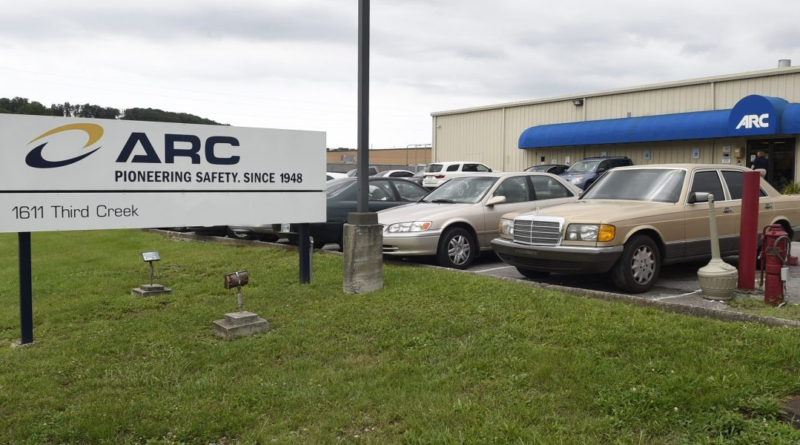ARC Automotive can't ensure airbag inflators won't explode
A company that makes air-bag inflators that have exploded in eight incidents involving two deaths and seven injuries argued Tuesday that it can’t say for sure whether its inflators might cause further such incidents.
In a reply to the National Highway Traffic Safety Administration, the company, ARC Automotive of Knoxville, Tennessee, said that even adhering to industry quality standards cannot fully eliminate the risk of occasional failures in which the air-bag inflators might explode and spew shrapnel.
NHTSA has demanded that ARC recall 67 million inflators in driver and passenger front air bags from at least a dozen automakers. Neither ARC nor the auto industry has released a full list of vehicle models with the kind of air bag inflators that have exploded. But at least 33 million vehicles on the road are believed to contain them.
ARC has refused to issue a full-scale recall, setting the stage for a possible court fight. The company maintains that no safety defect exists, that NHTSA’s demand is based on a hypothesis rather than technical conclusions and that the agency has no authority to order a parts manufacturer to announce recalls.
“Even with appropriate industry standards and efforts by manufacturers to minimize the risks of failures, the manufacturing processes may not completely eliminate the risk of occasional or isolated failures,” ARC wrote in its reply.
The company further argued that the federal motor vehicle safety act “does not require vehicles and equipment to never experience a failure in the field. Rather the Safety Act seeks to protect the public against unreasonable risks.”
In response to another question, ARC acknowledged that it hasn’t notified any customers that its inflators are expected to occasionally explode. But it said that during NHTSA’s eight-year investigation into the inflators, air bag makers, automakers and the government have been informed of any unexplained ruptures on the roads.
“The risk of manufacturing anomalies cannot be completely ruled out in any mass production process,” ARC wrote.
In response to a question from NHTSA, the company also said it didn’t have enough data to estimate how many additional ruptures will occur on the road.
It is unclear what might happen next. Having tentatively determined that the inflators are defective, NHTSA could press ARC to conduct a recall, then schedule a public hearing on the matter. If the company refused, the agency could take ARC to court to force a recall.
NHTSA said in a statement that it would give ARC “the opportunity to present information, views, and arguments showing that there is no defect or that the defect does not affect motor vehicle safety.
A message was left Tuesday seeking comment from ARC. The company has noted in the past that no automaker has found a defect common to all 67 million inflators and that no root cause of the inflator ruptures has been identified.
One person who died after an ARC inflator explosion was Marlene Beaudoin, a 40-year-old mother of 10 from Michigan’s Upper Peninsula. She was struck by metal fragments when her 2015 Chevrolet Traverse SUV was involved in a minor crash in 2021. Beaudoin and four of her sons had been on their way to get ice cream. The sons were not hurt.
NHTSA contends that byproducts from welding during manufacturing can clog a vent inside the inflator canister that is designed to let gas escape to quickly fill air bags in a crash. Pressure can build to the point where the canister is blown apart.
In 2018, ARC finished installing scopes to monitor welding byproducts and the vents. NHTSA said in April that it was unaware of any explosions involving inflators that were manufactured after the scopes were installed.
Though ARC is now resisting a full-scale recall, automakers have conducted eight smaller recalls of the company’s inflators since 2017 that were attributed to isolated manufacturing problems. Those recalls included one that General Motors announced last month involving nearly 1 million vehicles.
Though ARC is now resisting a full-scale recall, it has conducted three smaller recalls of inflators since 2017 that it attributed to isolated manufacturing problems. Those recalls included one that General Motors announced last month involving nearly 1 million vehicles.
Owners of vehicles made by at least a dozen automakers — Chevrolet, Buick, GMC, Ford, Toyota, Stellantis, Volkswagen, Audi, BMW, Porsche, Hyundai and Kia — are left to wonder anxiously whether their vehicles contain driver or front passenger inflators made by ARC.
Because ARC supplies inflators that are included in other manufacturers’ airbags, there’s no easy way for vehicle owners to determine whether their inflators are made by ARC.
After NHTSA sought the ARC recall, the Transportation Department Inspector General released an audit of the agency’s Office of Defects Investigation that found management problems. Auditors determined that audits took too long and that investigators weren’t adequately supervised.


